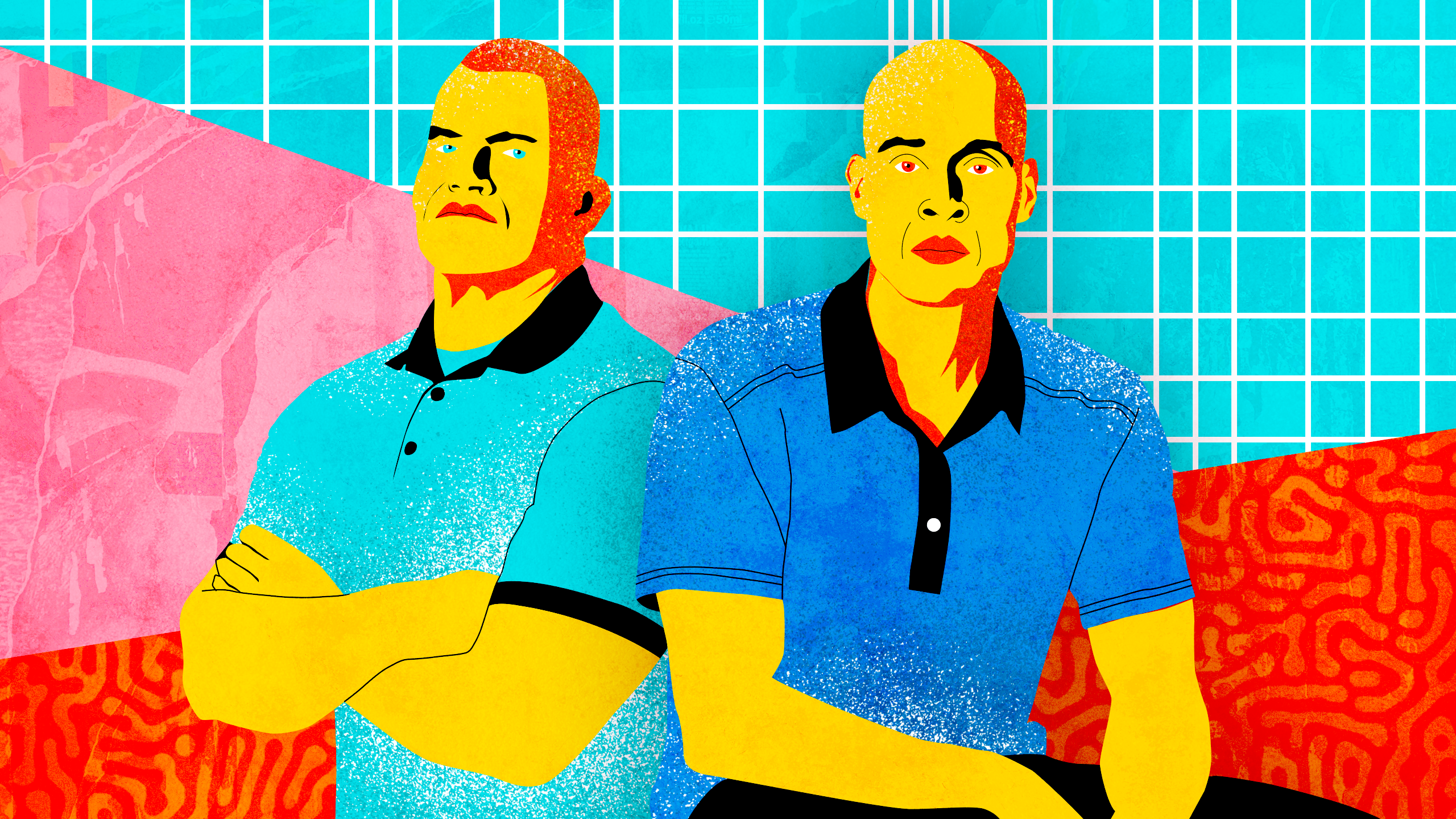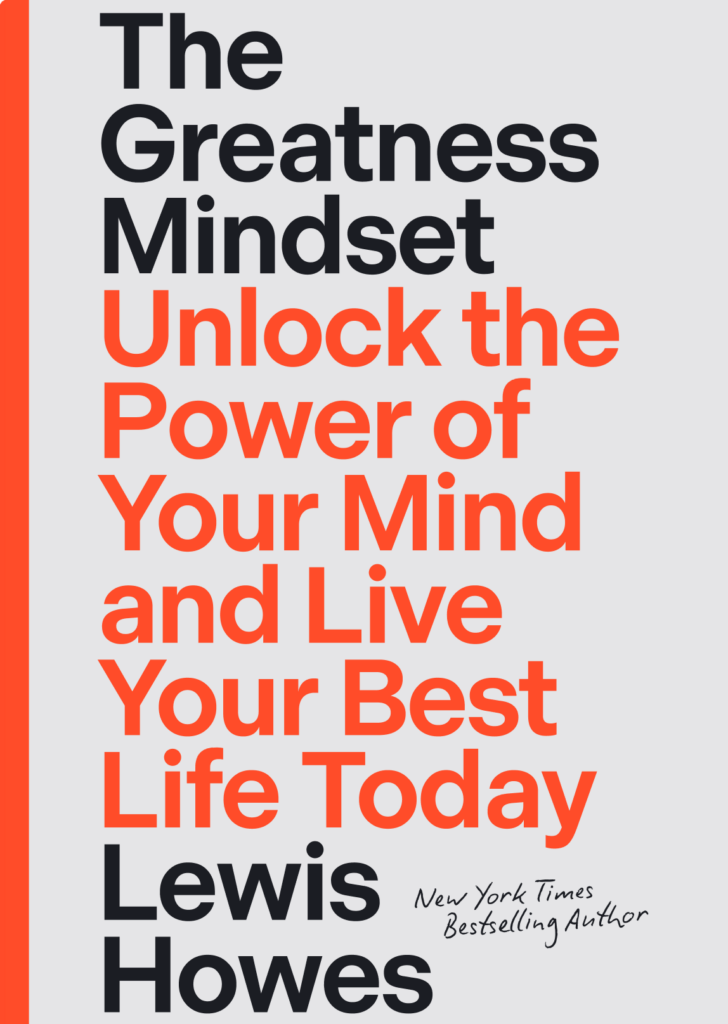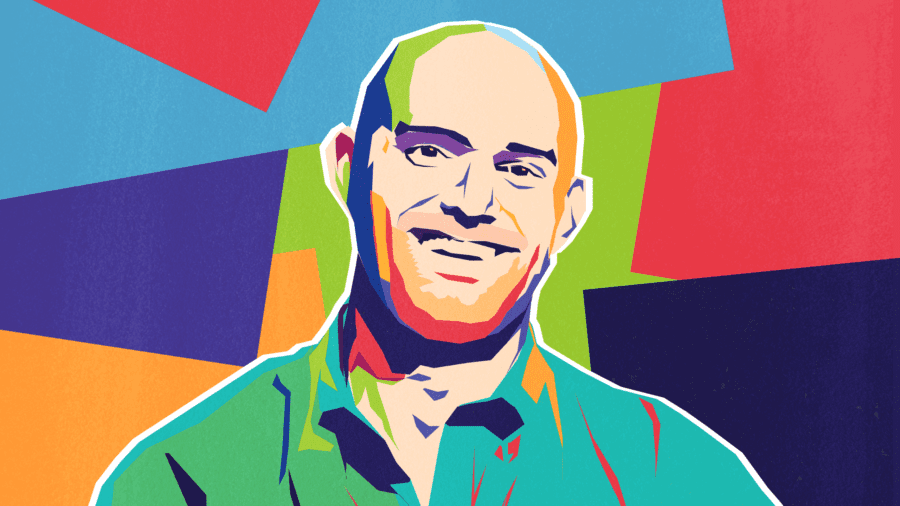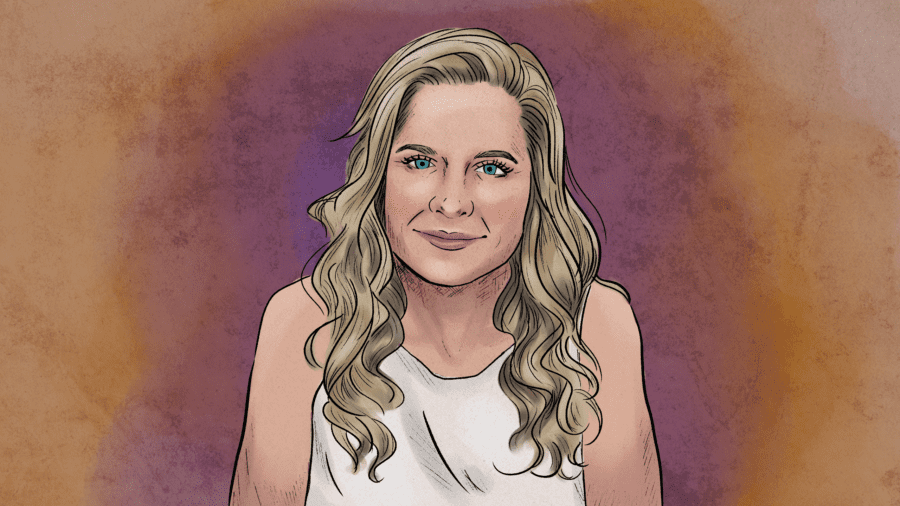
Jocko Willink & David Goggins’ Guide to Endurance, Self-Discipline, & Mental Toughness
Do you want to develop expert mental toughness and self-discipline?
Accomplishing the different goals in our lives can be challenging, especially because many of us have various dreams and objectives that require a great deal of hard work. Fortunately, we can learn from some of the most motivated and disciplined people in the world and apply their lessons to our own lives.
Two highly remarkable individuals who have a lot of expert knowledge when it comes to developing tremendous endurance, mental fortitude, and self-discipline are David Goggins and Jocko Willink, two former Navy SEALs who have made a career in pushing themselves to their absolute limits.
David Goggins has lived an inspiring story that proves it’s never too late to turn your life around. Goggins struggled with issues regarding his self-image, and from a young age, he lived with a crippling learning disability. He thought he would never accomplish anything with his life. That all changed when he decided to become a Navy SEAL. He worked tirelessly to push himself through Navy SEAL training, which included two Hell Weeks, and he eventually became the only person to complete SEAL training, U.S. Army Ranger School, and Air Force Tactical Air Controller training. Goggins also went on to accomplish tremendous physical feats after his military career, including the Guinness World Record for pull-ups and many ultra-marathons.
Jocko Willink served as a Navy SEAL for 20 years — that’s where he became the commander of SEAL Team 3’s Task Unit Bruiser, the most highly decorated Special Operations Unit during the Iraq War. Since his time in the SEALs, Willink has authored several books, including Extreme Ownership and The Dichotomy of Leadership, and co-founded the Echelon Front, an expert combat leadership program. Willink has spent years educating and motivating others to become the most disciplined, optimal versions of themselves.
Goggins and Willink have shared expert guidance on acquiring tremendous mental toughness, motivation, and self-discipline through the years, so let’s get right into it!
Developing Mental Fortitude
Your mind is capable of incredible feats, and enhancing your mindset and mental fortitude is a key part of developing perseverance to accomplish your goals.
David Goggins and Jocko Willink are no strangers to optimizing mental fortitude. They both developed the mindset to persevere and take on unthinkable challenges head-on. Fortunately, there are tools we can use to develop this bulletproof mental fortitude.
One of the most important parts of developing mental fortitude is recognizing that making progress almost always requires pain and discomfort. Take a moment to picture an accomplished bodybuilder such as Brandon Curry or even Arnold Schwarzenegger. Do you think they built their muscles by taking it easy on themselves physically? Obviously not. They clearly went through periods of immense discomfort, and they made challenging lifestyle choices to accomplish their fitness goals.

Although we’re not all striving to build muscle, the physical discomfort of weightlifting serves as an important reminder that accomplishing great things takes tremendous hard work, and this work is uncomfortable.
David Goggins is a masterclass example of how persevering through physical and mental pain and discomfort can lead to great things. He champions the idea that we should focus on the hard work itself rather than just the rewards that may come later. Rather than looking forward to periods of rest, focus on the physical and mental discomfort that’s required to accomplish your goals.
For example, if you have fitness goals, don’t focus on the rest days or the cheat meals you intend to take — zero in on the discomfort that’s necessary for accomplishing your fitness goals, whether that be exhaustion from cardio or intense muscle fatigue from weightlifting.
In addition to the physical or mental pain you’ll experience when working toward your goals, it’s also important to be honest with yourself, no matter how uncomfortable that may be. Being kind to yourself is important, but you can motivate yourself and develop a stronger mental fortitude by looking at your problems and being unflinchingly honest. Don’t sugar-coat your problems or the things that you’d like to change about yourself.
If you’re establishing fitness goals for your health, it’s not helpful to lie to yourself about where you are currently. Be honest with yourself about the state of your health, such as having high blood pressure or other risk factors for developing heart disease. Rather than let this honesty discourage you or make you feel bad about yourself, use it as a motivator to create and accomplish fitness goals.
Shift your mindset to embrace discomfort, and use honesty as a motivator so that you strive forward to greatness.
A Guide to Self-Discipline
Our mindset shift and mental fortitude equip us with the tools to start engaging in better self-discipline. If you were to interview thousands of highly successful people, you’d probably receive many explanations for how they were able to accomplish great things, but you’d likely also hear two common throughlines at the heart of their success: focus and perseverance.
Accomplishing incredible feats takes tremendous focus, and our goals require us to never give up. You can optimize your ability to focus and persevere by developing strong self-discipline.
Let’s return to the weight-lifting analogy for a moment. Do you think that Brandon Curry skips gym days and eats a bunch of cheat meals during his training periods? No. He wouldn’t be able to maintain his competition physique if he allowed his self-discipline to break down.
Regardless of your goals, you can apply this same principle. For example, if learning a new instrument is important to you, you should practice daily, and don’t give yourself an excuse for skipping practice.

The Greatness Mindset
Learn the secrets of some of the greatest minds in the world. Unlock the power of your mind and live your best life today.
Learn MoreJocko Willink teaches two key tools for developing better self-discipline:
#1. Develop the Mentality That Your Work is Never Complete
When Willink trained Navy SEALs, he instilled the mentality that their work was never finished. He made an effort to make training sessions harder after the trainees had already accomplished their primary objectives. He would even have his men undergo surprise exercises and training sessions when they were already in bed. Willink knew that the battlefield is relentless and there’s never a period where you can fully relax.
Although we don’t need to persevere relentlessly and never take a break, we can learn from this tool to develop stronger self-discipline. Sometimes life throws us curveballs, and we may need to take on seemingly-insurmountable challenges at a moment’s notice. We can prepare for life’s challenges while also strengthening our self-discipline by making an effort to overwork ourselves occasionally. You don’t need to work yourself into an early grave, but you can develop stronger self-discipline by challenging yourself with your workload.
#2. Overcome Hesitation
Sometimes one of the biggest detriments to our self-discipline is hesitation. You might hesitate to go to the gym because you’ve had a long day, and during that moment of hesitation, you formulate an excuse for why you can’t exercise today. It’s easy to dissuade ourselves from taking on challenging tasks when we hesitate, but you can use a simple tool designed by Mel Robbins to overcome these moments of weakness: the 5-second rule.
Implementing the 5-second rule into your routine is incredibly easy. All you need to do is count backward from five. Once you reach “one,” you move forward with the task at hand.
For example, if you experience a moment of hesitation before heading to the gym, you can simply count backward from five, and once your countdown is complete, you need to take action. Science says this practice works because there’s a 5-second window between an instinct or motivation, and the hesitation to not act on it. The reason is because our brains are designed to help protect us from harm – so they’ll magnify any feeling of doubt and trick us into not taking any action at all. This is why it’s so critical to leverage the power and momentum of the moment during that initial 5-second window.
In order to get the most out of this tool, you need to develop the habit of taking action at the end of the countdown. Make sure to follow through with the 5-second rule and move forward with striving toward your goals.
How to Build Mental Toughness and Self-Discipline According to Science
The main reason why it’s critical to not make excuses or give yourself an out when striving toward your goals is because we’re made up of all our small decisions.
Skipping the gym today might seem trivial and not detrimental to your physical fitness, but if you continue making excuses and miss more and more days, you’ll get out of the habit of going, making it far more difficult to reach your fitness goals.
When you repeat the same small decisions over and over again, such as missing the gym or hitting the “snooze” button, the small decisions build upon themselves, leading to negative habits and lifestyle choices.
On the flip side, when we make small healthy decisions, the decisions become easier over time. If you decide today, “I’m going to forego my usual unhealthy snack and instead eat something healthy,” you’ll likely find it somewhat challenging at first. You may be tempted to abandon your healthy snack and return to something more appetizing. Fortunately, this gets easier over time. If you continue choosing healthy snacks, you’ll find it progressively easier to make that decision.
The reason why our small actions are so important is because of your brain’s neuroplasticity, meaning your brain’s ability to change. As you make the same decisions over and over again, whether it’s going to the gym or choosing not to have an unhealthy midnight snack, your brain’s neural circuits that underlie these decisions become stronger, leading you to have an easier time making the same decisions as you repeat them.
Making the choice to have more self-discipline takes work and repetition, but as you continue making healthy choices and decisions that move you closer to your goals, you’ll have an easier time solidifying them as habits.
Implementing Emotional Mastery to Defy the Odds
Emotions are a powerful thing. If we don’t have control over our emotions, they can be harmful to our goals, but with emotional mastery, we can use them as tools for motivation.
Allowing your emotions to control you is a slippery slope because that means other people and external circumstances can dictate your behavior. Has anyone ever said something hurtful to you and ruined your day? Maybe you didn’t feel especially motivated to work toward your goals because of the emotional impact of their words.
Emotions are not inherently bad, but we can gain more mastery over them so they don’t control our behaviors.
David Goggins’ story is a great example of how you can use adversity and emotionally difficult circumstances as motivators. From a young age, he struggled heavily in school because he had a severe learning disability, and he also dealt with a physically and emotionally abusive father.
As he grew up, Goggins felt that he was destined for failure. He believed himself to be inherently stupid because of his upbringing and learning disability. He only turned his life around once he decided to use the pain as a motivator. Goggins knew he didn’t want to be a failure, so he used his emotions and fears to drive himself to become a Navy SEAL.
Jocko Willink uses a system for harnessing his emotions to motivate himself. He utilizes both logic and his emotions to maximize his potential. He finds this tool highly effective because logic and emotions often oppose one another, so you can use one of them when the other isn’t working.
For example, you might use logic to motivate yourself to become more knowledgeable in your professional career. Perhaps you know that you need to stay on top of recent industry trends and processes in order to stay sharp and continue striving forward toward professional success. On the days when logic isn’t working as a motivator, you can instead use emotions. Perhaps you focus on your fear of failure to motivate you to go the extra mile professionally.
It’s critical that you use your emotions as motivators rather than letting them stop you from accomplishing your goals. Nearly everyone experiences doubt from time to time, and some days you may feel like giving up. The trick is to harness your doubts as motivators for success rather than allow them to stop you.
Use your doubts to motivate you to develop positive habits and lifestyle choices. If you’re experiencing doubts regarding your business prowess, for example, you can use that as a motivator to learn more and grow in your skills rather than allow it to dissuade you from your goals.
Join In 200 Million+ On The Journey to Greatness
Develop Unparalleled Motivation and Self-Discipline Through These Great Tools
Adopting a strong mindset and expert self-discipline takes tremendous work and effort. Fortunately, there are many resources and articles you can use to stay on the right track toward achieving greatness. Greatness.com features a number of inspiring stories, including the stories of Jesse Owens and Malala Yousafzai, that you can use as a reminder that you’re capable of accomplishing amazing feats.
Additionally, you can check Jocko Willink’s podcast for hours of inspiring stories from him and his guests, and you can read David Goggins’ book Can’t Hurt Me: Master Your Mind and Defy the Odds to learn all about his inspiring journey to become a world-class success.
Developing superhuman self-discipline and mental toughness requires time and consistent exertion, but YOU are more than capable of becoming extraordinary.
Remember, it all starts with the small decisions you make. You can take the first step toward mental fortitude and accomplishing your goals RIGHT NOW by refusing to make excuses and striving forward to greatness.
Greatness Authors
Greatness Authors is a collection of writers, thinkers, curiosity experts, and students of the world who are committed to bringing you the most up-to-date, impactful, and inspiring information surrounding Greatness topics.

Redefining Poetry: How Instagram Sensation Rupi Kaur Showed That Poetry Is for Everyone

The 7 Best Vitamins to Naturally Promote Better, Uninterrupted Sleep According to Shawn Stevenson

The Science of Forming Healthy Habits & Letting Go of Bad Ones, According to Author James Clear

9 Signs You Have Imposter Syndrome at Work and How to Overcome Performance Insecurity

Olympian Yusra Mardini’s Incredible Story of Resilience, Rescue, and Refugee Rights











